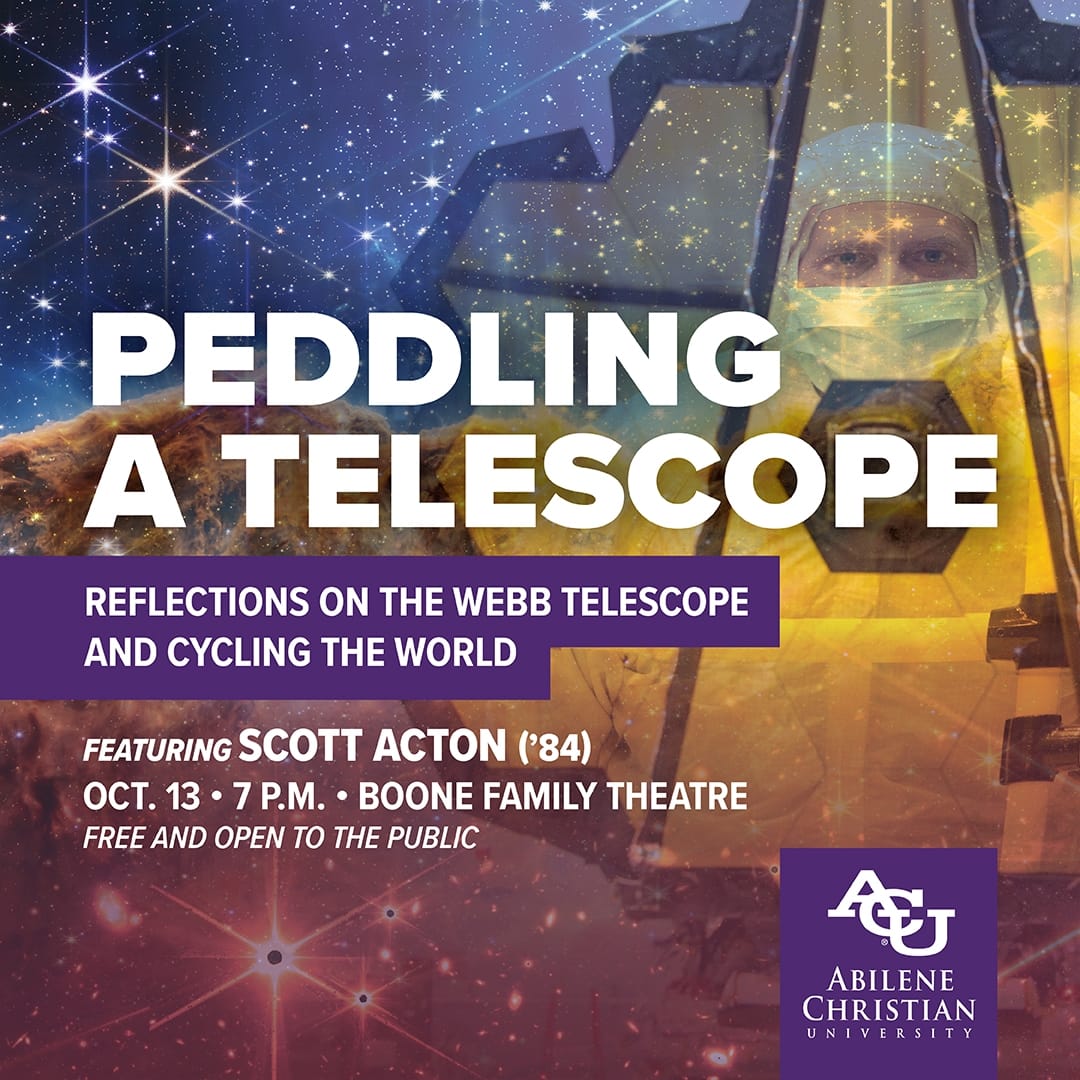Dr. Scott Acton, a 1984 graduate of Abilene Christian University who has spent nearly 24 years working on the James Webb Space Telescope, will speak on campus Thursday at 7 p.m. in the Boone Family Theatre. The event is free and open to the public.
Acton, a wavefront sensing and controls scientist with Ball Aerospace, was responsible for the design, implementation and usage of the adaptive optics system for the James Webb Space Telescope and was among the first to see the test images sent back from the telescope. On Thursday, he’ll speak about “Peddling a Telescope: Reflections on the Webb Telescope and Cycling the World.” The event is hosted by ACU’s Department of Engineering and Physics, and Acton will also meet with and speak to students earlier in the day.
“Scott is a great example of our physics and engineering graduates who use their ACU education and experience to make a real difference in their field of study and in the world,” said Dr. Larry Isenhower, associate professor and director of physics in the Department of Engineering and Physics. “We’re thrilled to bring him to campus to share his stories and experiences and to meet with our students.”
Acton has been working on the telescope mission for nearly 24 years, and in April, he was among the first to see test images sent back after the telescope had been fully aligned in space. For the test, Webb observed a small neighboring satellite galaxy called the Large Magellanic Cloud, revealing the galaxy’s dense field of hundreds of thousands of stars.
“These images have profoundly changed the way I see the universe,” Acton said at the time. “We are surrounded by a symphony of creation; there are galaxies everywhere!”
Now, the entire world is seeing the capabilities of Webb through a series of stunning images released by NASA. As the largest and most complex space observatory ever built, Webb’s unprecedented sensitivity to infrared light will allow scientists to explore the early universe, the evolution of galaxies through time, the lifecycle of stars and other worlds outside our solar system.
Learn more about Acton and the Department of Engineering and Physics.
— Wendy Kilmer
Oct. 11, 2022

